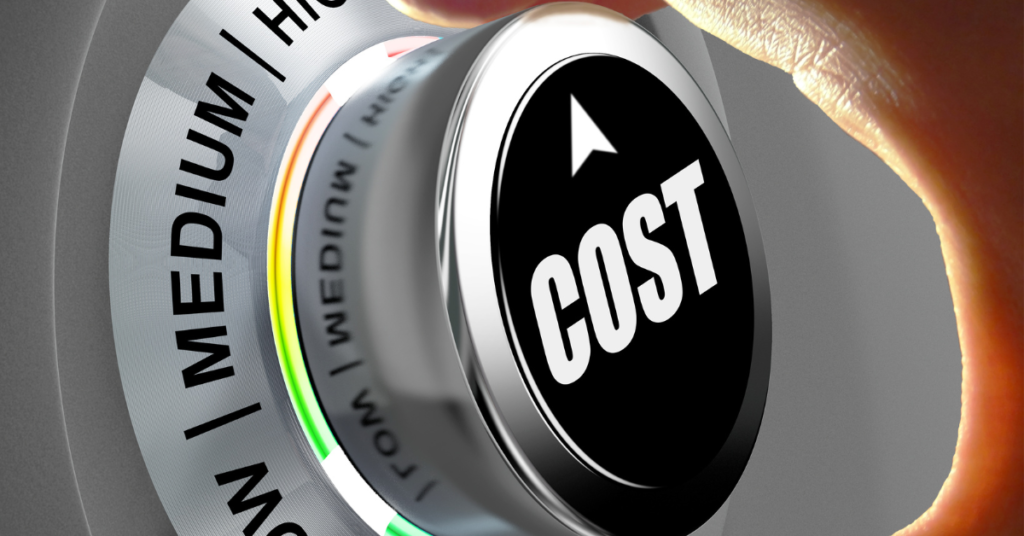In the Philippines, we commonly require medical certificates in various situations. For example, for securing sick leave, applying for jobs, or even when traveling! Healthcare professionals issue these certificates to verify a patient’s medical condition, confirming the need for absence or treatment. If you’re a doctor, healthcare professional, or clinic owner, it’s likely that your patients will frequently ask this question. “How much is a medical certificate in the Philippines?“
Understanding the costs of medical certificates is essential for managing patient expectations and maintaining a smooth, efficient practice. Pricing can vary based on several factors. This includes the type of certificate, the complexity of the medical condition, and the healthcare provider issuing it. For a basic medical certificate, patients can typically expect to pay anywhere from ₱100 to ₱500.
However, costs can increase if they provide additional services, such as consultations, lab tests, or specialist examinations. For instance, a fitness-to-work certificate or a certificate for travel clearance may require additional tests, which could raise the price. Furthermore, they often bundle consultation fees with the certificate fee in private clinics. So the overall cost might be higher in urban areas compared to rural health centers.
It’s also important to consider location. Because clinics in metropolitan areas, particularly in places like Metro Manila, generally charge more due to higher operational costs. Understanding these nuances can help set clear and transparent pricing for your patients.
By adopting efficient clinic management tools such as an electronic medical record (EMR) system, you can streamline the process of issuing medical certificates. You can also save time and reduce administrative overhead. This not only makes the experience smoother for your patients but also optimizes your practice’s operations.
What Is a Medical Certificate, and Why Do You Need It?
A medical certificate is a formal document that a licensed healthcare professional issues to confirm a patient’s medical condition. They require this for various reasons, such as:
- Sick leave from work
- Admission to a school or university
- Legal matters like fitness to work or travel
- Insurance claims
- Travel purposes (for example, a COVID-19 clearance)
As a healthcare provider, it’s crucial to understand the requirements and costs associated with these certificates. Because they impact your clinic’s financials and patient trust.
How Much Is a Medical Certificate in the Philippines?
The price for a medical certificate in the Philippines can vary depending on several factors. This includes the type of certificate and the healthcare provider issuing it. On average, you can expect to pay anywhere from ₱100 to ₱500 for a basic medical certificate. However, the price can be higher if they require additional examinations, tests, or consultations.
According to recent discussions on Reddit, the actual price for medical certificates may fluctuate depending on the clinic or hospital. Some general practitioners charge a flat fee for consultation and the certificate, while others might charge separately for the certificate after a full check-up (e.g., ₱300 to ₱500).
The location can also influence the cost—medical certificates from private hospitals or clinics in Metro Manila, for example, may be priced higher than those from rural health centers.
Factors That Affect the Cost of a Medical Certificate
The cost of a medical certificate in the Philippines can vary depending on several factors. As a healthcare provider, it’s essential to understand these elements to help set fair pricing for your services. Here are the key factors that influence how much you might charge for a medical certificate:
- Consultation Fees: They issue most medical certificates after a consultation with the healthcare provider. The fee for the consultation is often bundled with the cost of the certificate, especially in private clinics. If the patient requires a full check-up or a detailed examination, this will naturally increase the overall price.
- Type of Certificate: Different types of medical certificates come with varying levels of complexity. For example, a standard sick leave certificate will typically cost less than a fitness-to-work or fitness-to-travel certificate, which may require additional tests, examinations, or medical clearance. If lab results or additional documentation are necessary, the cost of issuing the certificate may rise accordingly.
- Medical Specialization: Specialists such as cardiologists, pulmonologists, or other medical experts may charge more for issuing a certificate due to the complexity of their assessments. A general practitioner, on the other hand, would typically have lower fees for a simple medical certificate. Certificates related to specialized care or treatment can be more expensive because of the in-depth expertise required.
- Insurance Coverage: When a medical certificate is needed for an insurance claim, the cost can vary depending on the insurance provider’s policies. Some insurance companies may cover the cost of medical certificates, but this is not always the case. If reimbursement is not available, patients may have to pay for the full cost of the certificate.
- Location: The cost of a medical certificate may also depend on where the clinic or healthcare provider is located. Clinics in urban areas like Metro Manila generally have higher prices due to increased overhead costs, while rural health units or government health centers may charge lower fees.
Are There Any Official Rates for Medical Certificates?
In the Philippines, there are no fixed, nationwide rates for medical certificates. This is because the cost of medical certificates is largely influenced by various factors, including consultation fees, the type of certificate required, and the healthcare provider’s location. However, the Philippine Medical Association (PMA) does provide general guidelines for consultation fees, which can serve as a useful reference when determining pricing.
The PMA’s guidelines offer a basic structure for consultation fees, but these rates are not set in stone and can vary depending on the complexity of the consultation and the specialty of the healthcare provider. For example, a consultation with a general practitioner will generally cost less than one with a specialist such as a cardiologist or neurologist. The guidelines are flexible, allowing healthcare providers to adjust their rates based on their location, clinic size, and patient base.
While there are no official rates for medical certificates themselves, healthcare providers are encouraged to align their fees with industry standards to maintain transparency and fairness. This is especially crucial if you are part of a larger healthcare network or hospital. Many hospitals and clinics in urban areas tend to set their own rates based on demand, market conditions, and the services provided. It’s also important to consider overhead costs, such as rent and staff salaries, when setting fees.
In rural areas, where healthcare costs tend to be lower, the rates for medical certificates may be more affordable. Regardless of location, it’s vital to remain competitive while ensuring that the pricing reflects the level of care and service you provide. Aligning with industry standards will not only help you set fair and transparent rates but also build trust with your patients.
What Should Be Included in a Medical Certificate?
When issuing a medical certificate, healthcare professionals must ensure that it is accurate, clear, and professional. A medical certificate should generally include:
- Patient’s Full Name: As registered with the clinic or hospital.
- Date of Consultation: When the patient was seen by the doctor.
- Diagnosis or Medical Condition: A brief statement outlining the medical reason for the certificate.
- Duration of Absence: If the certificate is for sick leave, include the recommended period of rest or recovery.
- Doctor’s Signature and License Number: This ensures authenticity and credibility of the certificate.
How Can Clinics Streamline the Process of Issuing Medical Certificates?
For doctors, clinics, and healthcare providers, streamlining the process of issuing medical certificates can save time and reduce administrative overhead. One effective way to improve efficiency is by adopting an electronic medical records (EMR) system, which can automate patient records, scheduling, and the generation of medical certificates.
With an EMR system like DoktorEMR, you can eliminate the need for paper records and easily access patient histories. This also helps ensure that medical certificates are accurate and easily verifiable. You can learn more about how EMR systems can benefit your clinic by scheduling a demo here.
How Can Telemedicine Affect Medical Certificate Costs?
With the rise of telemedicine, more consultations are happening online. For patients seeking a medical certificate remotely, the cost may be similar to in-person consultations. However, it is essential to ensure that the medical certificate issued via telemedicine is legitimate, with all the necessary patient information and proper doctor certification.
As a healthcare provider, if you offer telemedicine services, make sure your EMR system can seamlessly integrate virtual consultations and the issuance of medical certificates. This can enhance your clinic’s flexibility and reach, making it easier for patients to get medical certificates without having to visit in person.
Conclusion
So, how much is a medical certificate in the Philippines? On average, expect to pay between ₱100 to ₱500, but the cost can vary based on the clinic, type of certificate, and location. Understanding these factors will help you set fair pricing and ensure that your patients are satisfied with their medical certificates.
If you’re a healthcare provider looking for ways to improve your clinic’s efficiency, consider transitioning to a paperless, EMR-powered system like DoktorEMR. Not only will it streamline patient records, scheduling, and certificate issuance, but it will also enhance patient satisfaction and save time for your team. Want to see how it works? Check out our demo videos and take the first step towards a more efficient practice today!
For more information, check out this Reddit thread where fellow healthcare professionals discuss the price of medical certificates.





